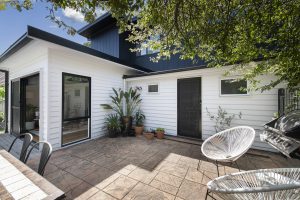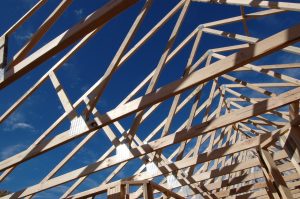When your home no longer provides the amount of space your family needs, you’re faced with a challenging decision – move into a bigger house or extend your current home? Moving is often the first idea that comes to mind for homeowners with a growing family or welcoming elderly relatives back into their property.
But with a changing economic landscape and property market uncertainty, extending an existing home has become a more attractive choice for many Australians. Many people looking for more space already live in a location they love, after all, where they have embraced their community, built lasting friendships with neighbours, and may even work or study nearby. House extensions offer the opportunity to improve their existing property without the disruption and costs associated with moving.
If you find yourself in a similar position, it’s only natural that the house extension costs will play a significant role in your decision. Building a whole new section of a house sounds like it can hurt the bank account, but many reputable Builder’s deliver budget house extensions that make it highly achievable.In this article, the team at Capital Building have put together a guide on everything you need to know about house extension costs and how to get the most out of your budget in Melbourne.
What is the cost of building a home extension?
The cost of building is expensive. Whenever we speak to people who are just finding out about the costs of building, invariably we perceive a drawing of breath and a lengthy pause.
Prospective clients will often conceal their surprise but think to themselves, ‘builders are rogues’ or worse. That is until they speak to the next builder and get a similar story. If you are comparing builders on the same set of plans and specifications you won’t find a huge variation in prices.
As a rule of thumb, if you get 3 to 5 builders quotes they won’t vary by much more than 20% from the highest to the lowest. If you get a drastically too lowto low a price, chances are the builder is desperate, going broke, is not including a whole lot of things, does not know what he is doing or all the above. Live by the rule: ‘if it’s too good to be true, it is. ‘If you end up stuck with a builder that’s going under before or during a build, you end up paying what its really worth, in time and money wasted, anyway. And totally get the wrong impression about most builders.
Generally, all builders buy from the same or similar competing suppliers and pay their trades very similar industry rates. So the only way builders can be cheaper is by keeping their overheads low and managing better than competitors. Builders who survive for 10 years or more are the ones most likely to know their stuff. Also, only Registered Building Practitioners are legally permitted to build and warrant all their work for a minimum of 10 years. Always ask for your bBuilder’s Practitioner Registration ID card.
What are Some Common House Extension Costs?
Whether you’re extending with extra space at back of your house or moving things skyward with a full, two-storey extension, there are some common costs to expect from each room. These costs bundled within quotes, but it helps to get an understanding of each when building a budget for your house extension.
Planning and construction costs
The costs associated with the initial design and planning of the home extension, as well as those incurred once construction begins, are the two expenses you can expect to find in your contractor’s quote. There is a substantial amount of work undertaken through the planning stage, requiring the time and effort of industry specialists to develop a floor plan that works structurally and suits your needs before bringing it to life. Planning and building costs include all the consultant, material, labour, equipment, management, permits and associated requirements for your extension.
Connecting water, electricity, gas, and other utilities
Installation of new services and their connection is another requirement in the house extension cost calculation. For many new rooms, such as kitchens, laundries, and bathrooms, installing water and electricity is essential to perform the many functions needed once the build is complete.
Heating, cooling and insulation
Unless your extension is simply to increase your homes storage; heating, ventilation, and air conditioning (HVAC) are likely required to ensure comfort and building code compliance. HVAC is essential and are something you must factor into your budget.
Materials
The materials involved in creating the new section of your home will obviously influence the overall price. These items can be recommended to you by the team at Capital Building or by your Designer. When completing a house extension on a budget, you need to choose between more expensive materials that might offer higher aesthetic value and functionality, and those that are more affordable. There is a huge range of materials on the market, with something to suit most budgets.
Home Extension Costs Based on Your Projects
While we mentioned some common home extension costs above, others will likely depend on your specific requirements. For example, your budget will have to factor in how much newly added space there will be, where the extension will go, and the structural and architectural concerns associated with the extension itself.
While these cost considerations are unique from one project to another, we’ll provide some average house extension costs per square metre, so you know what to expect.
Single-storey extensions
If you want to add extra space and rooms to a single-storey house usually you can expect to pay between $4,000 – $5,000* per square metre, including typical design and building permit requirements and market conditions**. Where your extension costs sit between those boundaries will depend on the design and materials used.
Two-storey extension
Double-storey extensions are an efficient and effective way to add more space and are usually similar in cost to achieve than a ground floor extension. Again, usually you can expect to pay approximately $4,000 – $5,000* per square metre, including typical design and building permit requirements and market conditions**.
*Additional costs should be expected for Kitchens (Approx. $45,000+) and Laundries (Approx. $5,000 – $12,000+).
**Statutory requirements, for example planning permits, can add additional costs in design, administration, and required specifications.
For more information on the house extension costs you can expect, please contact us at Capital Building today.




